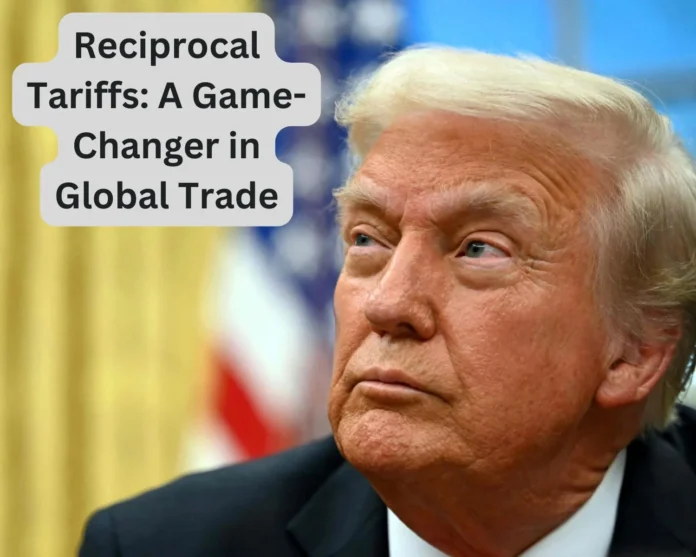Introduction
The discussion around reciprocal tariffs has gained momentum following former U.S. President Donald Trump’s recent statements. He indicated that a major policy shift was imminent, referring to it as “the big one.”
This raises questions about what reciprocal tariffs entail and how they differ from retaliatory measures. More importantly, what could their introduction mean for international trade? Let’s explore the details.
Defining Reciprocal Tariffs
Reciprocal tariffs are trade policies designed to ensure parity in duties imposed on goods between nations. The objective is to balance the playing field by mirroring the tariffs that foreign countries impose on American exports.
Unlike retaliatory tariffs, which are typically introduced as a reaction to newly imposed duties, reciprocal tariffs seek to reflect pre-existing trade barriers.
Trump’s Announcement: Key Takeaways
Trump reportedly took to his Truth Social platform to confirm the move, emphasizing its significance.
A news conference on reciprocal tariffs was scheduled for 1:00 P.M. at the Oval Office, with Trump reportedly declaring it a major step in economic policy.
Earlier in the week, he had signed executive orders that would introduce a 25% tariff on foreign steel and aluminum, set to take effect on March 12. The move, intended to safeguard U.S. industries, has not been well received by global trade partners, including Canada.
Global Trade Implications
1. Potential Strain on U.S. Trade Relations
The introduction of reciprocal tariffs could provoke backlash from key trade allies. Countries such as Canada, the European Union, and China may respond with countermeasures, increasing trade tensions.
2. Rising Consumer Costs
Tariffs generally contribute to higher costs for businesses that depend on imported goods. These costs often trickle down to consumers, possibly leading to inflation and reduced purchasing power.
3. Market Uncertainty
Financial markets tend to react unfavorably to trade disruptions. With reciprocal tariffs in play, investor confidence may waver, potentially affecting economic stability.
Reciprocal Tariffs vs. Retaliatory Tariffs
Although often used interchangeably, these expressions carry distinct meanings:
- Reciprocal Tariffs: Introduced to mirror tariffs that foreign nations impose on U.S. goods.
- Retaliatory Tariffs: Implemented in response to new trade restrictions placed by another country.
For instance, if Canada does not currently impose tariffs on U.S. imports, but the U.S. implements a 25% tariff on Canadian steel, this would not qualify as reciprocal—instead, it would be a separate policy decision.
Canada’s Response: Potential Countermeasures

Reports suggest that Canada has prepared a list of retaliatory tariffs targeting American industries while minimizing adverse effects on Canadian consumers. Prime Minister Justin Trudeau has implied that these measures would be strategically designed to exert pressure on U.S. businesses.
What Lies Ahead?
With the U.S. moving towards a reciprocal tariff strategy, several factors remain uncertain:
- Reactions from major trade partners – Will nations such as China and the EU introduce countermeasures?
- Impact on American industries – Will businesses relying on imports face financial setbacks?
- Effects on consumers – Will increased import costs lead to higher prices across various sectors?
Final Thoughts
The introduction of reciprocal tariffs signals a significant shift in U.S. trade policy. While aimed at fostering economic fairness, its broader implications on international commerce remain unclear. Businesses and consumers must stay informed about the evolving trade landscape. As these developments unfold, global markets will be closely monitoring the outcomes.


